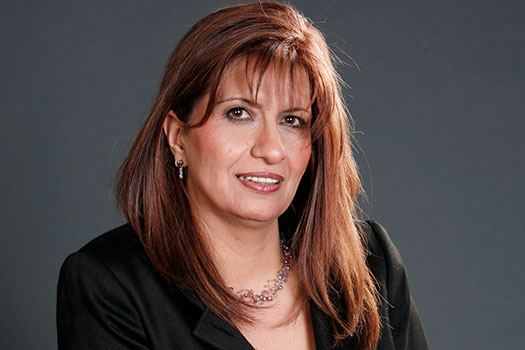

Introduction
Professor Nadera Shalhoub-Kevorkian, a distinguished scholar with dual American and Israeli citizenship who is a resident of California, commands global recognition for her groundbreaking contributions to Palestinian feminist theory and her unwavering commitment to grassroots activism in Jerusalem.
On April 18, 2024, Professor Shalhoub-Kevorkian was subjected to detention and interrogation by Israeli authorities. Despite a subsequent court order for her release, she continues to face the ongoing threat of further arrest and interrogation. It is evident that the line of questioning during these interrogations seeks to discredit her scholarly work by baselessly linking her to acts of violence.
The circumstances surrounding Professor Shalhoub-Kevorkian’s detention are deeply troubling. She was apprehended on meritless grounds, stemming from a gross distortion of statements made in her scholarly articles and during a podcast hosted by reputable university professors in the United States. During her detention, she endured degrading and dehumanizing treatment, including a humiliating strip search, tight restraints causing physical harm, denial of essential medication, and exposure to inhumane conditions in a cold and insect-infested prison cell.
– Lama Khouri
Co-Founder, of the Palestine-Global Mental Health Network, of which Nadera Shalhoub-Kevorkian is a member.
Standing with Professor Nadera Shalhoub-Kevorkian: Upholding Justice, Dignity and Academic Freedom
We, the Palestine-Global Mental Health Network, along with our affiliate Networks, spanning Australia, Canada, France, Germany, Ireland, the Netherlands, South Africa, Sweden, the United Kingdom, and the United States, stand in solidarity to honor the remarkable scholarship and unwavering commitment to love, justice, and dignity for all demonstrated by our esteemed colleague and dear friend, Professor Nadera Shalhoub-Kevorkian who was detained on April 18, and although she was released the next day, she was subjected to prolonged interrogation by the Israeli police, and her safety continues to be under threat.
Professor Shalhoub-Kevorkian’s contributions to academia and activism are unparalleled. As a world-renowned scholar, her work transcends borders and disciplines, shedding light on the hopes of humanity, life and liveability. Her scholarship, based on analysis of processes of colonization, violence and racism, draws upon and enhances Palestinian feminist theory, offering profound insights into the lived experiences of marginalized communities, particularly in the city of Jerusalem where she resides. She has enriched our understanding of the workings of colonial power, including its practices of ‘bio power’ (intrusive control of all stages of human life and death) and through its shaping of discourses. She demonstrates how this contributes to a dehumanizing of Palestinians by constructing them as dangerous ‘others’, who must be subjected to surveillance, control and state violence.
Nadera Shalhoub-Kevorkian’s interdisciplinary approach means that she is well placed to simultaneously analyse the ‘macro world’ of power politics and its infiltration of the ‘micro world’ of intimate human relationships and subjectivities. This has produced insights of immense value to clinicians as well as academics.
In her groundbreaking work on children, Nadera Shalhoub Kevorkian expounded and developed her concept of ‘unchilding’ which she defines as the “authorised eviction of children from childhood”. This is enacted through state violence, fear, displacement, the undermining of parental function and the denial of the right to normal physical and psychological development. Her work has influenced paediatricians and child mental health clinicians around the world. ‘Unchilding’ encompasses a range of psychological wounds inflicted on the psyche of the infant, the child and the adolescent. It describes the deliberate denial of Palestinian childrens’ fragility and vulnerability and the depiction of them as either terrorists or potential terrorists. At the same time, and most importantly, Nadera’s work depicts children as active subjects in their social worlds, who scrutinize the techniques of power used upon them and assert their own moral values and desires for hope and freedom. She listens carefully to childrens’ own narratives and uses their testimonies to frame her writing. This process of amplifying childrens’ voices has had a profound effect on the practice of many of us who work with children and families. Nadera’s passion for the well-being of children permeates her academic work, bringing together the love and anti-violence characterizing the feminist ethos in all her writing.
What also sets Nadera apart is not only her academic prowess but also her tireless dedication to grassroots activism. She is not content to merely theorize; instead, she actively engages with communities, amplifying their voices and advocating for meaningful change. Nadera’s work embodies a steadfast commitment, within the framework of international law, to challenging systemic injustices and striving towards a more equitable world for all.
Those of us who have had the privilege to hear Nadera speaking can attest to the erudition, academic rigour and eloquence which she brings to public debate. We are also aware of what a beacon she has been for her students and fellow academics and how important her voice has been for them.
It is hard to overstate the deep concern and dismay with which we respond to the recent events surrounding Nadera’s detainment and interrogation by Israeli authorities. Despite her peaceful advocacy and scholarly endeavors, she has faced baseless charges and undue scrutiny, highlighting the oppressive tactics employed to silence dissenting voices. It is a profound insult to her sophisticated scholarship and scrupulous use of theoretical terminology that this work is now the main subject of the police interrogation. Throughout this ordeal, Nadera has remained steadfast in her principles, standing firm in defence of academic freedom and the right to dissent.
Her message remains unwavering: one of love, justice, and dignity for all. Her resilience in the face of adversity serves as a beacon of hope, inspiring countless individuals around the world to continue the fight for a more just and compassionate society.
As we continue to advocate for Nadera’s freedom and the protection of academic freedom worldwide, we celebrate her profound impact on the socio-legal field and feminist studies. Her scholarship serves as a testament to the power of knowledge and the transformative potential of academia in addressing abuses of power.
Join us in calling upon Secretary of State Blinken to protect this renowned scholar and American citizen.
Please follow this link and add your name.
The post Standing with Professor Nadera Shalhoub-Kevorkian: Upholding Justice, Dignity and Academic Freedom appeared first on CounterPunch.org.
This content originally appeared on CounterPunch.org and was authored by Palestine-Global Mental Health Network.